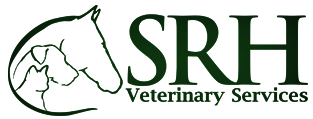VACCINATIONS FOR ADULT HORSES
By the American Association of Equine Practitioners
**ALL VACCINATION PROGRAMS SHOULD BE DEVELOPED IN CONSULTATION WITH A LICENSED VETERINARIAN**
CORE VACCINATIONS protect against diseases that are endemic to a region, are virulent/highly contagious, pose a risk of severe disease, those having potential public health significance, and/or are required by law. Core vaccines have clearly demonstrable efficacy and safety, with a high enough level of patient benefit and low enough level of risk to justify their use in all equids. For a chart of vaccinations for adult horses, click HERE.
Protecting Your Horse from Disease Outbreaks
By Dr. James R. Corley
When it comes to protecting your horse from disease outbreaks, mom was right. An ounce of prevention is definitely the way to go. Infectious diseases can be devastating to your horse and your pocketbook, but there are steps you can take to protect your horse. Prevention is a two-fold process. The first approach is to vaccinate your horse for those diseases, which vaccines are available. Unfortunately, we have vaccines for fewer than a dozen diseases, so vaccination alone won’t provide the total answer.
Should we vaccinate for all of the dozen or so diseases that vaccines are available? Not necessarily.
Select vaccines based on the likelihood of exposure to the disease and by the type of disease produced. Vaccinate first for diseases that are highly fatal and to which your horse may most likely be exposed. These include diseases like tetanus and encephalomyelitis (sleeping sickness).
Follow this with vaccination for diseases that are highly contagious even if not highly fatal, especially in horses which are involved in group activities. Vaccination is effective not only in protecting individually vaccinated horses from disease, but also in reducing the overall numbers of infected horses in a group, making exposure less likely for everybody.
The second approach is to prevent exposure to infectious diseases. In order to do this you need to understand how some common infections are transmitted. A number of infectious diseases fall into the “social diseases” category. These are very contagious diseases transmitted via horse-to-horse contact or by sharing intimate items such as water or feed buckets, dose syringes or the same air space. These include the respiratory viruses such as influenza (flu) and rhinopneumonitis (rhino) and bacterial pathogens such as Streptococcus equi (strangles).
While vaccinations are available for a number of these infectious agents, the vaccines are not 100 percent effective and may not totally prevent a disease outbreak in the face of heavy exposure. The best thing to do is insist that sick horses be isolated and not brought to public gatherings. Meticulous hygiene should be practiced with regard to items in the environment that can transmit the disease. Don’t underestimate the value of reducing exposure to infectious agents. Some infectious diseases such as equine infectious anemia (swamp fever) have neither an available vaccination or a cure, so prevention is critical.
While your horse may be at less risk for the “social diseases” if it lives in isolation, even horses which do not come into contact with other horses are not exempt from the possibility of infectious disease. Birds are reservoirs for the virus that causes equine encephalomyelitis, and mosquitoes transmit that disease by feeding on the horse. Tetanus spores are found everywhere in the soil and in the fecal material found wherever horses live. Skunks and other wild mammals infected with rabies may wander into a pasture and bite a curious horse. Opossums are suspected of contaminating the pasture with infective forms of equine protozoal myelitis (EPM) organisms through their feces. It can be difficult, if not impossible, under certain management conditions to control exposure where horse-to-horse contact is not the primary mode of transmission. This makes it even more important to vaccinate against those agents for which vaccines are available.
As you can see, there is value in employing both strategies when it comes to protecting your horse from disease outbreaks. Be sure to use every resource available. Your veterinarian is an excellent source for information as well as a partner for developing a preventative health care plan for your horse.
See the full article, and more at: http://www.aaep.org/info/horse-health?publication=737




